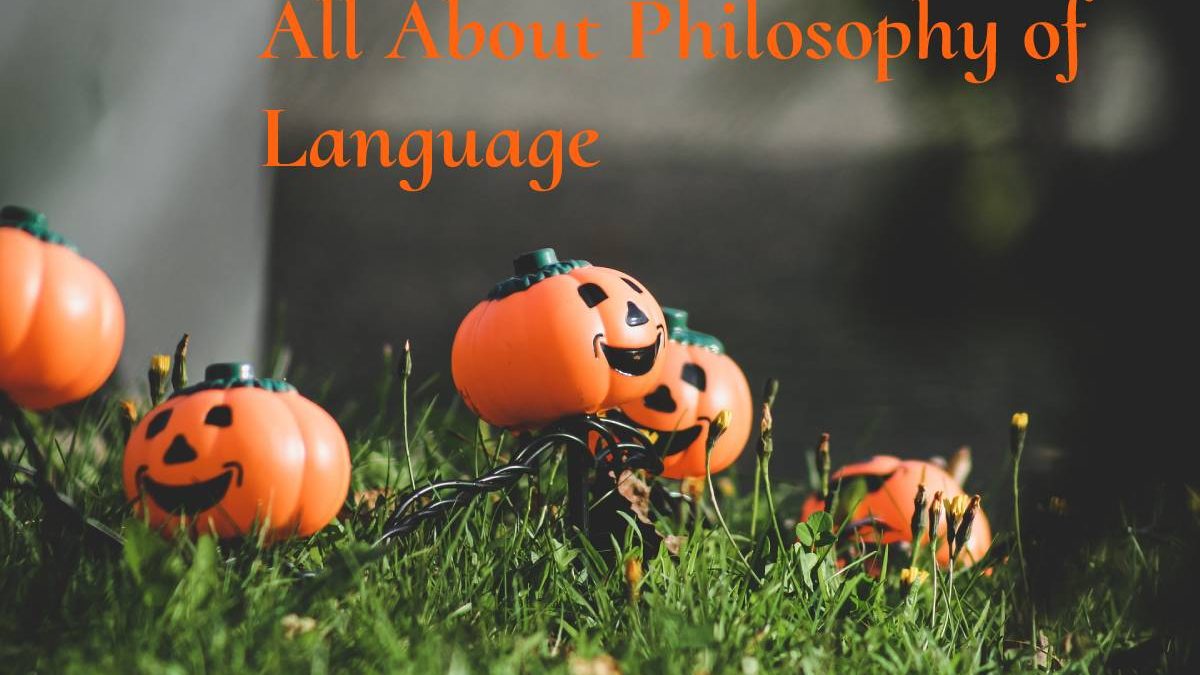Table of Contents
What is Language?
To understand what the philosophy of language is, we must, first of all, define what language is.
Sánchez Meca offers us a definition in two senses. First, in a broad sense, as a means of communication between living beings. In that sense, communication between animals, non-verbal communication between human beings, music, mathematical symbols, etc., is language. But, in a restricted sense, language is a set of sounds that carry meaning or meaning. The purpose, then, is the essential condition of the linguistic fact. In addition, language poses three fundamental problems:
- How can a sound -or ensemble- become the bearer of a universal meaning?
- How is the communication of meanings possible through language, and what relationship does this conversational form of communication have with other forms of non-language communication?
- If words are something different from the things they represent, what relationship exists between the two and to what extent language is a vehicle of thought to know the reality
What is the Philosophy of Language?

To resolve these questions, we need to enter the philosophy of language. The philosophy of language emerges as a leap from the theory of knowledge to the idea of language. We cannot take for granted that when we talk about something, those very words are full of content. Philosophers such as Plato or William of Ockham already anticipated the philosophy of language. Medieval nominalism, for example, dismissed the idea that the word “humanity” had any content.
There is no “humanity”, but humans. When we speak of “humanity”, we understand that there is a common substrate, a universal. But where is that universal? We never perceive “humanity”, but concrete beings. Buddhist scholasticism and contemporary anthropology are also nominalists. There is no “culture” , but “cultures” for current anthropology”. For Buddhism, there is nothing in the world that repeats itself. Repetition has the peculiarity of being physically and chemically impossible. But repetition is an essential element of any language.
Initially, the philosophy of language focused on the word-reality-mind triad. That is, what relationship exists between these three areas. However, this triad implied other branches of philosophy:
What ensures the world has to do with the mind? If earth and reason have no relation to each other, how can we know?
If language makes representations of the mind, but the reason is unrelated to the world, how can language be meaningful?
- How is logic related to language?
- Can there be a universal language?
The Two Perspectives of the Philosophy of Language
These questions address by thinkers such as Leibniz, Hume, Locke, Frege, and Russell. Regarding the relationship between the theory of knowledge and the philosophy of language, it must be taken into account that, for example, the debate on innate ideas has repercussions on language acquisition—the philosophy before the s. XX linked language to the remarkable capacity of the human being to reason. Thus, for example, Aristotle differentiates man from the animal in his Politics according to the logos (word/reason). The phone (voice), on the contrary, is an expression of pain and pleasure that animals also have. But the word, which is only castoff by human beings, is a tool by which we can reflect on our happiness and pain, what is convenient for us and what is not, and what is fair and unfair.
All About Philosophy of Language
Aristotle could be proposing a relationship between language and ethics. Language either offers us the ability to understand what is good and wrong, or it is an anthropological expression of this capacity for discernment. There is room for a great variety of reflections in this regard: can we think without language? Do language and thought to share the same logical structure? Can there be irrational language? Descartes, for example, continues the Aristotelian line of linking language to rationality. The human being has language because he has thought. In addition, the thought from Descartes turns on itself. He is a being for himself. Descartes’s language could occur in the very interiority of consciousness without the need for the questioned «res extensive».
The Turn to the Pragmatics of the s. Xx
In the S. XX -in addition- linguists, psychologists and philosophers began to examine the phenomena of language learning and mastery. With advances in syntax and semantics, knowing a language was not simply a matter of associating words with concepts. Instead, it also crucially involves learning how to put words together since we usually use sentences to express our thoughts, not single words (Stanford Encyclopedia of Philosophy).
On the other hand, in the s. XX, the philosophy of language, takes another perspective and turns from the theory of language to the linguistic context: those questions about the relationship between mind, speech, and world. We must put them in parentheses and attend to the question of language in a context. Already Austin warns us – and before him, philosophers like Spinoza – that a misinterpretation of language gives rise to many philosophical problems that could be avoided (in philosophy, it is a principle not to multiply entities unnecessarily).
That is to say, and language always mediates by a context in which a very varied assortment of factors include: social, economic, political, etc., that condition the use of language and meaning, and that makes it difficult, among other things, too, translation from one language to another. This is currently called «pragmatic».We can include authors such as Wittgenstein (in his second period), Peirce, Austin, Searle or Quine. For example, one varies his language according to whether he addresses a friend or whether he addresses his grandmother; he does not use the same register, and the meanings of the words can change according to the context.
In addition, they introduce new concepts, such as the performativity of language. That is: we can create things with words. For example, giving an order, asking for marriage, etc. They call these “speech acts.” To specify, if certain conditions saw (consent, a promise of the future spouses, that the required words articulate, etc.), two people can marry through language.
Having established the two main currents of the philosophy of language, we must define language’s philosophy.
Conclusion
Now analytic philosophy, philosophy of language investigates the nature of language the relations between language, language users, and the world. Investigations may contain inquiry into the heart of meaning, intentionality, reference, the constitution of sentences, concepts, learning, and thought.

